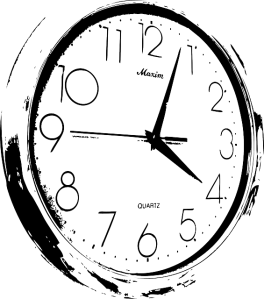Every writer/blogger/project-lover plans. You can’t avoid it. And everyone has their own methods, their own ideas on how to plan a project/article/book.
I feel like I’ve really honed my planning technique with this book, so, I thought I would share how I planned my latest novel: A Crown of Sea & Stone.
The Initial Idea:
Whether you’ve had it in the back of you mind for months, or you wake up one day with it, we all gets ideas. When I get an idea for a novel, I like to go with the flow; write the idea down as it came to me, and see what it looks like.
Is there something interesting there?
Can I work with it?
Is this a good idea for a novel or a short story?
Is it total rubbish?
Often at this point, I like to read the idea aloud, whether to myself or someone else, and see what changes as I attempt to explain my (very raw) idea. This usually helps me flesh it out/work out the major plot holes.
Getting It On Paper:
Next, I flesh it out on paper. In the initial process, I usually make rough notes, but I use this next stage to really fill in the blanks. I usually write 2-5 pages summarizing the story to myself in linear order.

Notebooks:
I do all of my notes, planning, character and location descriptions in one notebook. That way, I’m not frantically searching for random pieces of paper or documents.
I will continue to use this notebook the whole way through the writing process, and during publication too.

Mood Boards:
This book is the first time I’ve used mood boards, and I regret waiting so long! I really struggle with visualizing characters and locations, so this really helped. (Here are my boards for A Crown of Sea & Stone if you’re interested.)

Excerpts:
Despite my best efforts, I don’t always write my novels in linear progression. Sometimes, when I’m stuck on a scene, I move on to a different one further on in the story, and eventually the two pieces will meet in the middle.
This can backfire, and you can end up writing yourself into a corner and then having to spend ages correcting it, so approach this tip with caution.
Word Count Tracker:
I use social media (mostly my Instagram to hold me to the mark when it comes to word count. For this novel, I wrote the first 50,000 words during Camp NaNoWriMo 2020.
The next 15,000 came gradually over the space of 3 months, interrupted by lots of editing and re-drafting.

I like the pressure of being kept accountable by my friends and followers; knowing someone is aware that I am writing really helps me focus.
However that pressure can be quite intimidating, so do whatever makes you feel most comfortable.

Talk It Out:
This book would gathering dust on my hard-drive if I hadn’t had several chances to talk it out. My main sounding board was my best friend, but another surprising listener was my partner’s best friend.
Whenever he came over, he would ask how the book was going, and the poor sod would have to listen to me frantically try and piece the story together enough to explain it to another person. It really helps find the plot holes, the twists that don’t make sense, and to get another persons perspective on your characters.
The Drafting Process:
Now, depending on your method, the drafting and editing processes’ could easily be switched/intertwined here. I like to do a mini edit to each chapter as I go – it saves some embarrassing grammar errors being missed in the long run.
After I’ve got one complete draft, I comb through looking for more glaring errors, go back and correct a few plot holes, and then ignore it for at least a month. That way I am able to be more critical as I become more detached. You can’t spot most mistakes whilst you are writing.

Editing:
See above?
In fairness, I struggle to separate editing and drafting. Although, I would like to think I do different layers of editing: grammar, structure, plot, layout, character consistency, and location consistency (i.e.: a door has moved from one scene to another, a character’s hair has changed colour, etc.)
Once I am happy that the manuscript is finished, I send it off to a few beta readers and wait for feedback. Once I have collated their notes, I do a min (or major) redraft, and finish the book.
Cover Design/Visuals/Marketing/Release:
Yay! I’ve got a manuscript. Now, I’ve just got to publish it… ugh.
Personally, I prefer to self-publish using Amazon Kindle Direct Publishing, but this would also be a great point to seek out a literary agent or publishers.

I do all the cover design, interior design and layout, formatting, publishing and marketing myself, (although this time my lovely best friend, Ash designed the book cover with me [thanks, Ash!]).
And that’s it, you’ve written and published a book. Wasn’t that easy?












 e room screaming with excitement*
e room screaming with excitement*
